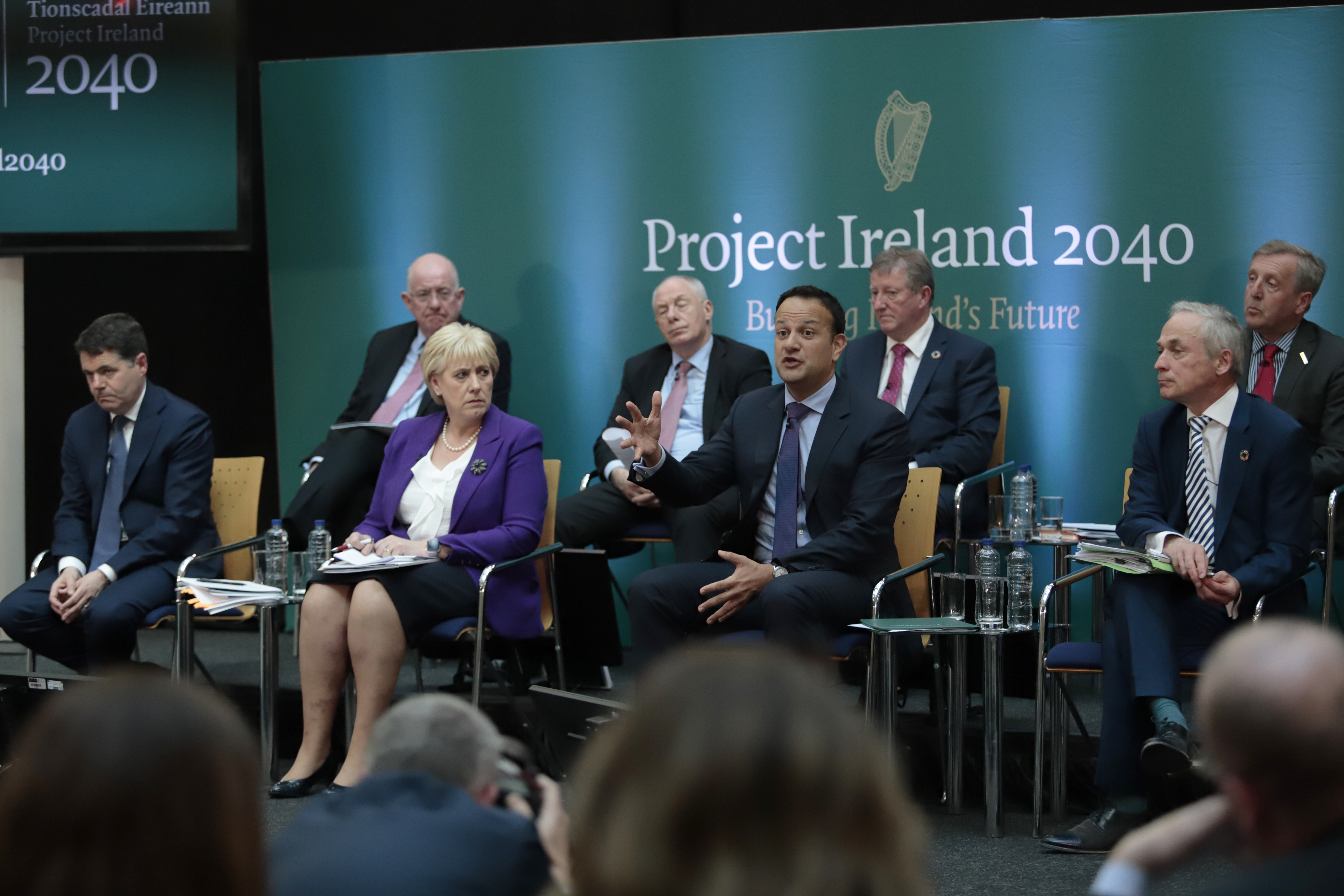
Every home, farm, school and business in Ireland will have access to high speed broadband – no matter where they are located – as the Government has approved the appointment of a preferred bidder to the National Broadband Plan.
Ireland becomes one of the first countries in the world to ensure that those in rural areas have the same digital opportunities as those in urban areas.
An Taoiseach, Leo Varadkar said:
As Taoiseach, it's my job to imagine the future and think about what it's going to look like. When I do that, I think of things like homeworking. Already some multi-nationals employ a quarter of their staff from home. They require high-speed broadband and secure connections. At the moment, many people living in Rural Ireland are excluded. I have seen students in small rural and island schools being able to study subjects like physics by video-link to a larger school. This will be even more common in the future. As a doctor, I am fascinated by technological developments in healthcare. Remote medicine is emerging all over the world. Access to broadband affects many parts of Ireland, and it requires a national solution. So that we can connect with the world, with family members, with businesses, with new ideas and new ways of doing things.
The Minister for Communications, Climate Action and Environment Richard Bruton T.D. said:
This investment will have a transformative effect on rural Ireland, future-proofing communities for generations to come. Digital technology is revolutionising how we live, learn and work and we want to make sure rural Ireland is not left behind.
Today's announcement ensures that the State makes a significant investment in broadband in the coming years. The state has invested just €400m in broadband from 2002-2016. In the period 2002-2021, €36.9 Billion will have been invested in Roads and €10.8 in water infrastructure.
National Broadband Ireland will supply broadband to the one quarter of Irish people and premises which currently cannot access high-speed broadband through commercial services. It guarantees a level playing field for 1.1 million people, 540,000 premises including 100,000 businesses and farms, and over 600 schools, where commercial operators will not commit to deliver high speed broadband.
Those 1.1 million people in rural Ireland will get the same opportunities as urban Ireland and will be able to avail of the range of new opportunities that high speed broadband has and will deliver. Without it, they won't have guaranteed access to these opportunities. It opens up:
- Flexible and remote working
- Smart health with online GP and nursing services and medical monitoring
- Cloud based services and connected devices
- Smart farming opportunities
- Digital learning
- Reliable electronic payments and bookings
The government will provide additional capital from 2021 from future revenues. No projects will be delayed or no changes will be made to the National Development Plan as a consequence of this decision.
What it means
The final bid provides for a reliable, very high-specification broadband supply in line with urban and international trends. This will provide fibre to 98% of all premises with speeds starting from 150mb/s, rising to 500mb/s in year ten for residential users and much higher speeds available for business.
Deployment of the network will commence immediately once contracts are signed. Over 90% of premises in the State will have access to high speed broadband within the next four years.
Nearly 300 broadband connection points (BCPs) will be provided in Year 1, acting as hotspots providing free Wi-Fi in local communities supporting digital work hubs in every county. The provision of the fibre network will take place in conjunction with these BCPs, with 120,000 premises covered by year 2, and 70,000-100,000 premises each year thereafter.
The Team
The Bidder has put together a team with significant Irish experience in large telecoms projects, as well as substantial international, industry experience to deliver the proposal. Collectively the team has:
- built 16 greenfield telecom operating companies
- rolled out 24 national telecommunications networks
- managed or delivered €40 billion in contract/business value
As required under law, Granahan McCourt has incorporated a new Irish registered company to be known as National Broadband Ireland (NBI) to build, operate and maintain the network.
Investment by the State
The procurement process was designed to determine what the total cost to the State would be of delivering high speed broadband to approximately 540,000 premises in advance of the Government making a final decision to proceed, or not, and before any contract was signed.
That procurement process has been concluded, and it has now been determined that the maximum possible cost to the state will be €3 Billion over 25 years. This includes €545m for conditional and contingent subsidy and includes €354m in VAT, which will be paid to the Revenue Commissioners as subsidy is spent. Subsidy will not be paid to the NBP company until the milestones have been achieved and there are a comprehensive set of protections and legally binding obligations set out in the Contract which include a suite of key performance indicators to ensure the service is maintained appropriately.
The initial connection charge and the monthly charges from service providers to the individual living in rural Ireland will be similar to those paid by residents in urban areas with the ability to avail of services such as voice, broadband, TV from the same service provider.
Next steps
Following confirmation of State Aid Approval by the European Commission and contract closing requirements, the Bidder will be awarded the contract for the National Broadband Plan. NBI will maximise the use of existing eir pole and duct infrastructure and will be supported by a number of large internationally experienced subcontractors including KN Group, the Kelly Group, eNet, Actavo, Nokia and many more local small and medium businesses in the telecom sector.